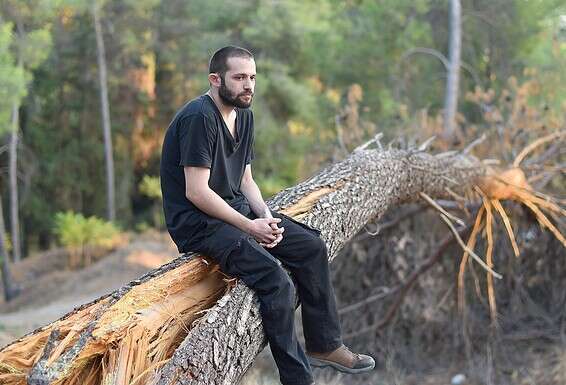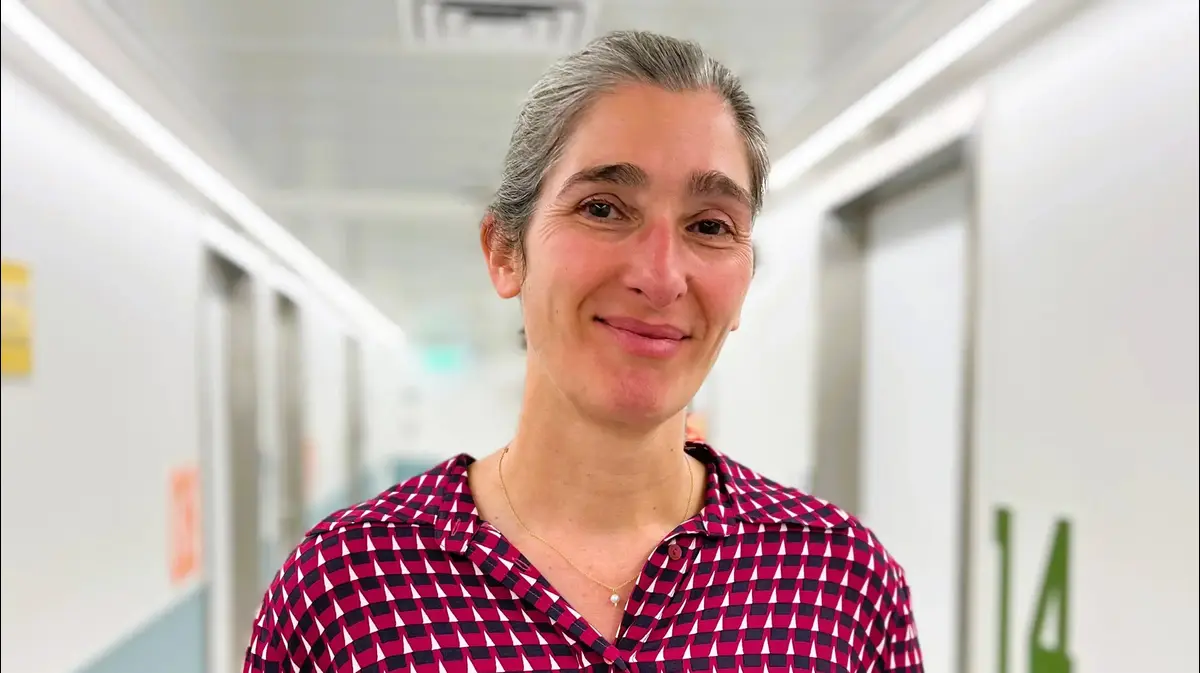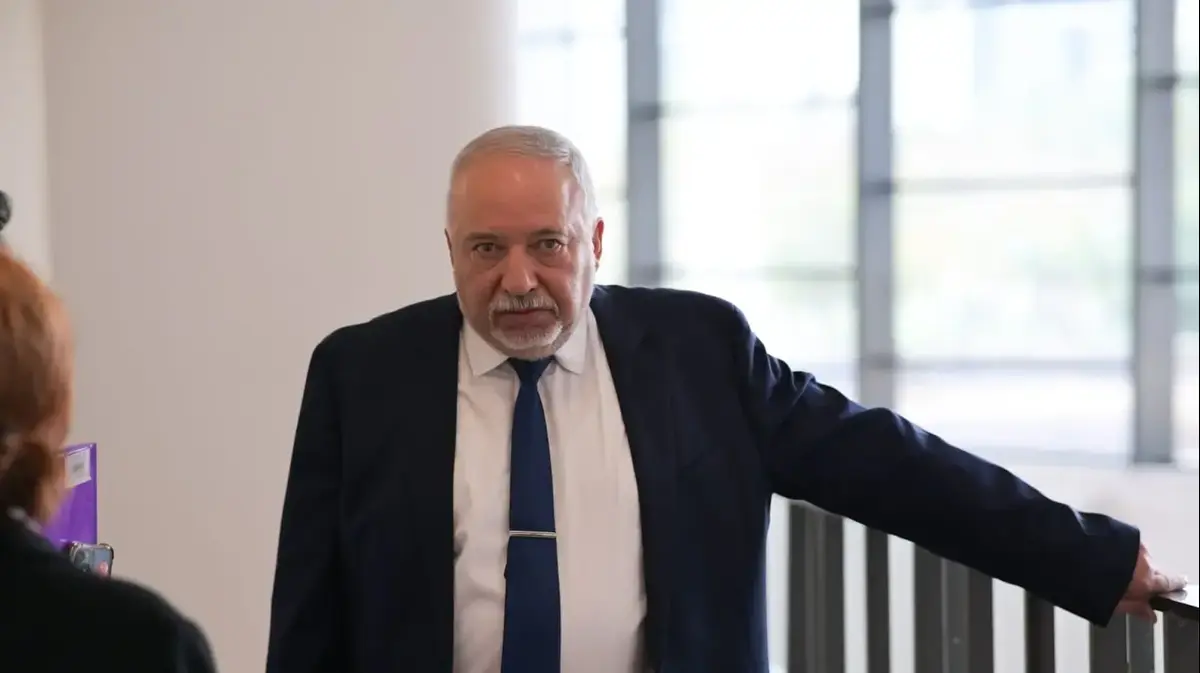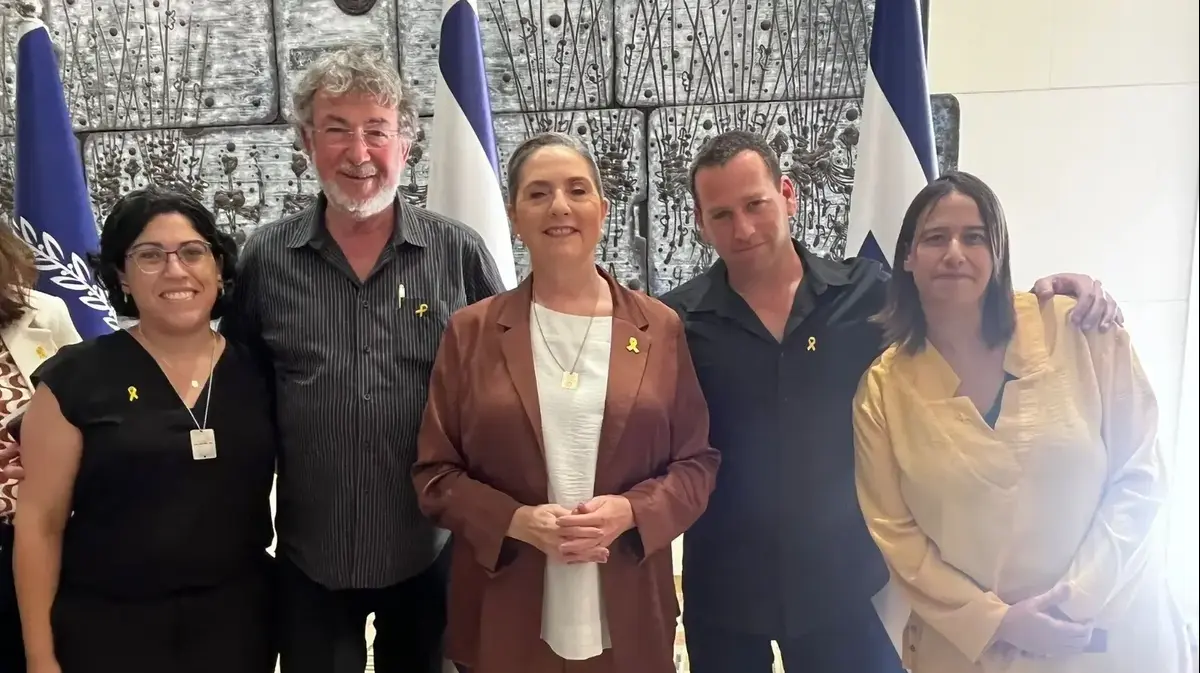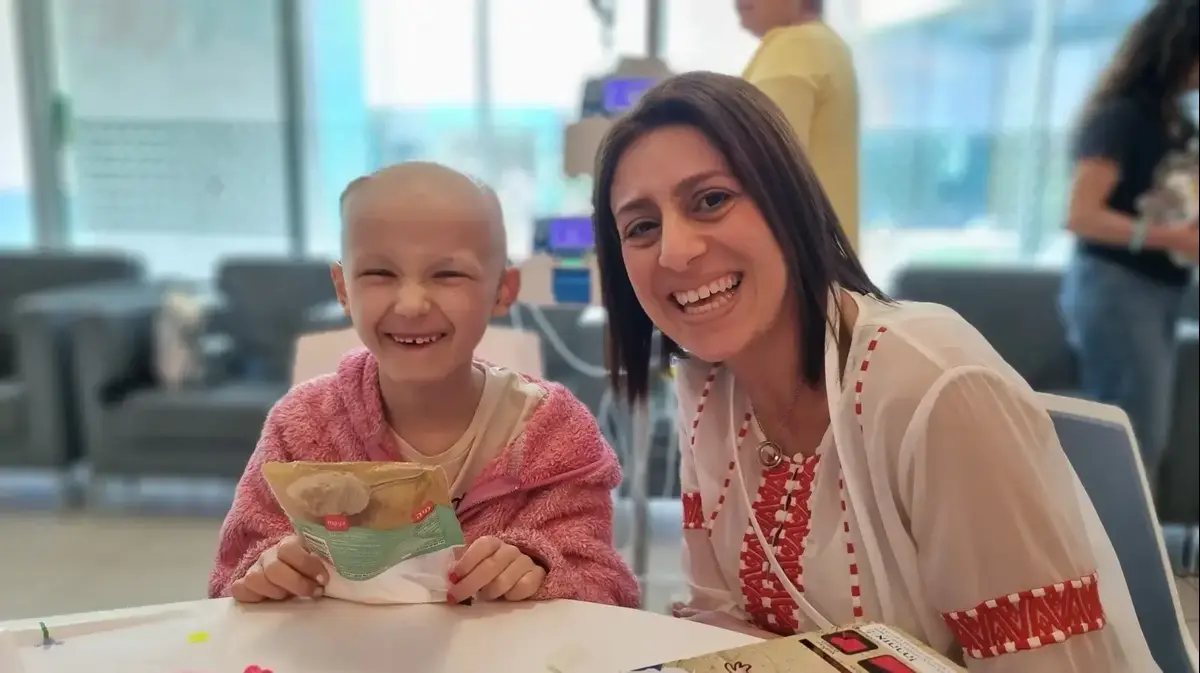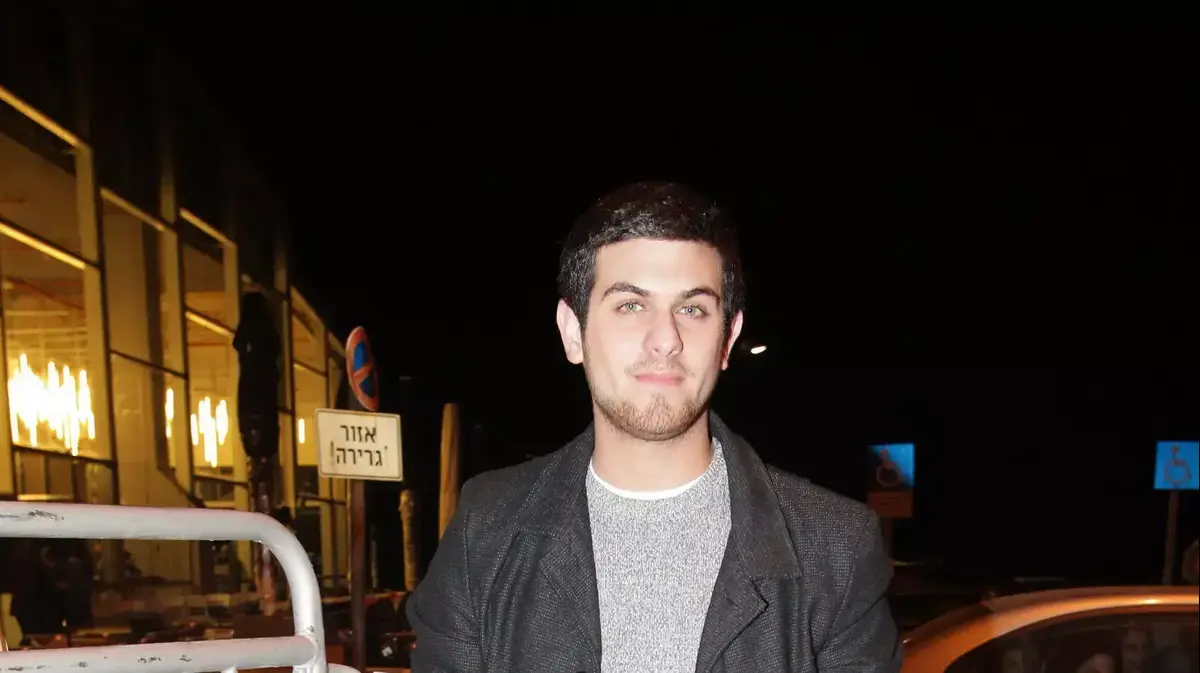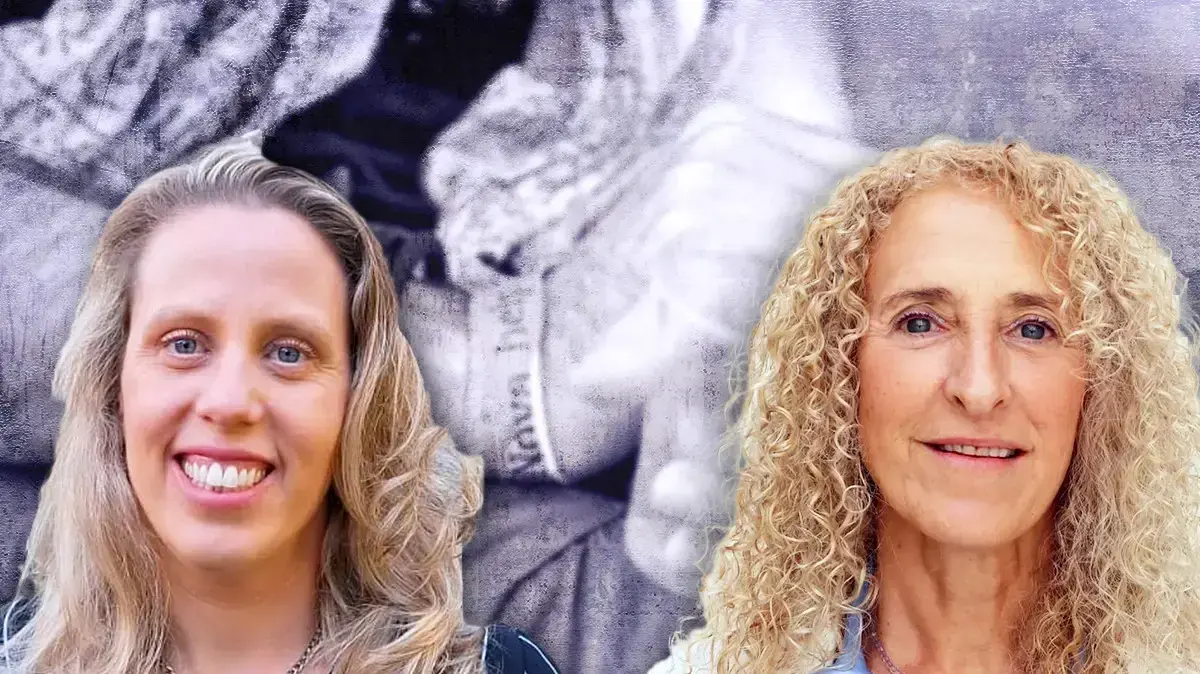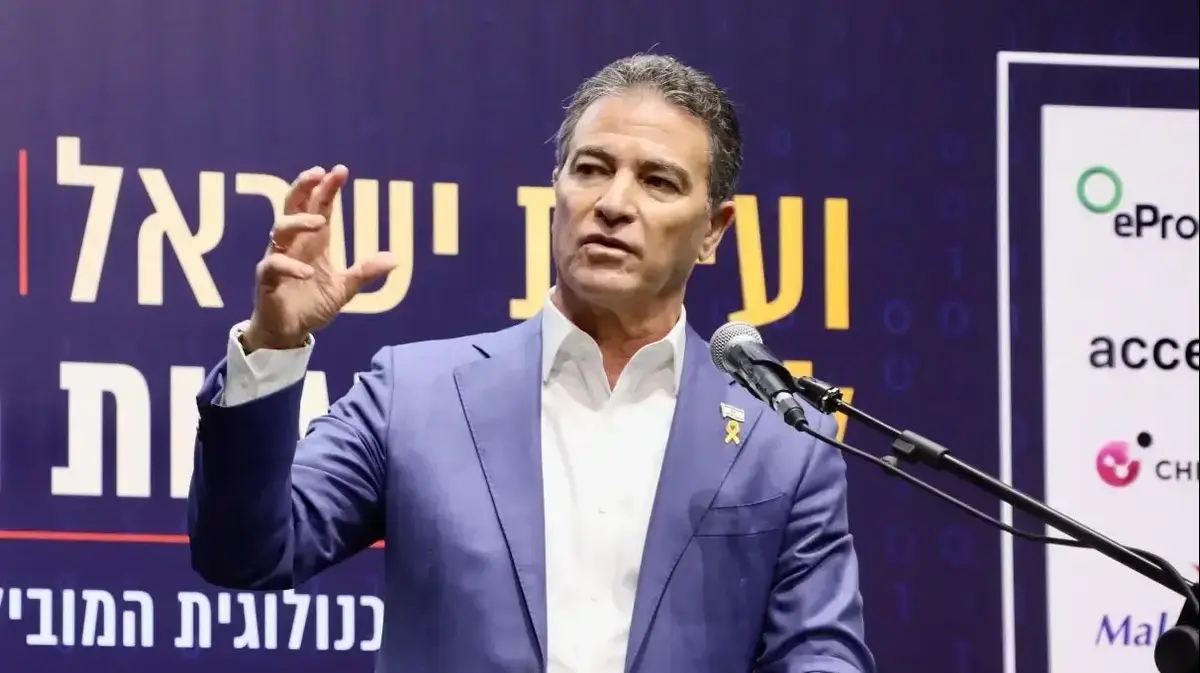A number of combat soldiers discharged from combat, who were diagnosed with post-trauma as a result of their service, applied to the Ministry of Defense for recognition as IDF disabled - and were rejected • The reason: opinion of the physician on behalf of the Rehabilitation Division, Dr. Ehud Rozicki, who stated that they have no post-trauma Some claimed: They are pretending
When the generation of Haznapratz,
shocked by a battle from Operation Eitan, heard on the news about Itzik Saidian, a former Golani fighter who suffered post-trauma after the same operation, and set himself on fire in front of the offices of the Ministry of Defense's Rehabilitation Office.
"I could also be Itzik Saidian," he tells us this week. "I, too, came to very difficult places, and tried to commit suicide. I live on a Social Security allowance, and hardly leave the house. What is sad is that a lot of Itziks walk among us, who reach the limit of their ability every day anew. All the terrible injustices that occur here." And the way they are treated is inconceivable. "
A year and a half passed from the day he sat at his mother's house in Ramat Yishai and repeatedly read the letter from the Ministry of Defense, informing him that he had not been recognized as an IDF invalid, despite the post-trauma he suffers from. "I picked up my cell phone and went down to the garden. "I switched to video mode, pressed play, and in one take I poured what was on my heart," he recalls.
"Dor described it in a video he posted on his Facebook page:" I enlisted in the 50th Nahal Regiment. During my training as a soldier, I was abused by commanders, and yet I was not broken. I took a medic course, I completed a fighter course, I caught a line in Nablus, I did operational activity, I participated in Operation Pillar of Cloud and Operation Return of the Brothers. At Eitan Cliff I was placed in a badly bombed base, and a few months later I felt something was wrong with me: nightmares, anxiety attacks, nerves , Intolerance and unexplained pressures.
"Eight different psychiatrists diagnosed me with post-trauma following my military service. I was treated with psychiatric pills, like Ciprofloxacin and Klonox. I finally decided to file a lawsuit with the Department of Defense to take responsibility for what I feel every day, hour by hour.
" The Department of Defense decided to listen solely to the opinion. Dr. Ehud Rozicki, a psychiatrist on his behalf, who, contrary to all the experiences I submitted, stated that I do not suffer from post-trauma, and that there is no causal connection between my military service and what I suffer from.
"Dear people of Israel, who are now returning home from the army and work. About us and sacrificing his life for us so that we can all live here in peace, look me in the eye and say to me: 'Does that make sense to you?'
Within hours, Dor received thousands of shares, likes and comments, which opened a Pandora's box. Post-traumatic discharged soldiers said they were not recognized by the Ministry of Defense after being examined by Dr. Rozicki. Dor and two young men in his condition, whose claim to be recognized as IDF disabled was rejected because of Rozitsky's opinion, have filed a formal complaint against the doctor. Did not receive an answer as to whether the complaint had been investigated.
Dr. Rozicki is a psychiatrist, director of the Lev Reut Mental Health Center of Clalit Health Services in Modiin Maccabim Reut. For the past 11 years, he has also served as a psychiatrist consultant for legal opinions for the Ministry of Defense.
Since the day Dor posted the video, we have been closely following up on more cases of discharged soldiers being diagnosed as post-traumatic following events experienced in the military. The diagnoses in those cases were made by psychiatrists at the HMOs, mental health clinics working with the Ministry of Defense and the IDF Combat Response Unit - and despite this, they were not recognized as IDF disabled, due to an opinion written by a Ministry of Defense psychiatrist and funded by Dr. Ehud Rozicki. .
In all cases, Rozicki denied the existence of post-trauma, attributing the subjects' mental state to difficult events they experienced before enlistment, such as parental divorce, ADHD, or domestic violence. However, if the doctor's version is correct, and the reason for the soldiers' mental condition lies in the events before the enlistment - how is it possible that none of them had a problem before the enlistment? How is it possible that all the soldiers got a 97 profile, became fighters, and finished their service as valued soldiers? Is it possible that Dr. Rozicki's opinion was deliberately vetoed, in order to serve the Ministry of Defense's Rehabilitation Division?
Shishvat received a document forwarded to Rozitsky by the Rehabilitation Division, with emphases related to the past of a battle blow addressed to him. Hand: "To Dr. Ehud Rozicki, please pay attention to the Remuneration Officer's comments."
The Remuneration Officer's comments in the document read: "The above does not have a matriculation certificate. According to the documentation collected, it can be seen that he was in psychological treatment in high school against the background of behavioral problems. He was expelled from school several times and was involved in fights. After the service he had a traumatic event and was hit in the head. In an absorption questionnaire for the battalion, the eligible person stated that he has adjustment problems due to problems at home. "
Although in the medical file of the battle shock were found documents from psychiatrists who diagnosed him with post-trauma (PTSD) due to military service, Rozicki diagnosed him as having a narcissistic personality disorder, and determined that there were partial PTSD symptoms from incidents in his military service. The man appealed to the court against the decision of the Rehabilitation Division.
Recently, three and a half years after the decision, when Rositsky was required to defend his opinion in court, he withdrew from the initial diagnosis, relying on the same medical documents he had at the time of filing at the time, and without meeting again with the battle shock. And so he wrote: "From receiving the neuropsychological diagnosis, which includes a diagnosis of PTSD and a review of all the reference material, I accept and recommend making a diagnosis of PTSD in a direct causal relationship."
The Zenfratz generation smiles a bitter smile.
"I, too, stated that Rozicki had a narcissistic personality disorder and a host of post-trauma following the service. In my opinion, too, he claimed in his opinion that I came to the army screwed from home, even though I served full service in profile 97. I have no money to appeal "How the Ministry of Defense, which engraved on its banner the slogan that no wounded are left on the ground, does the exact opposite. How the state sends soldiers to the battlefield, and when they return from it wounded and bleeding, it abandons them to their fate."
Seven years of nightmare
Until a few months ago, Dor (28) wandered between the homes of his mother, grandmother and his girlfriend Daniel. Since February 2020, he has been living on a Social Security benefit, which he recognized as mentally handicapped and was sentenced to 100 percent incapacity for work and 40 percent mental disability, following the post-trauma. A few months ago, his mental state deteriorated and he moved to live alone in a rented apartment in Tel Adashim in the Jezreel Valley. Dor does not work, is treated with medical cannabis and tries to survive every day anew.
At first glance it looks pleasant, calm. But when asked to recount what he went through in the army, his fluent speech stopped, he moved restlessly on the chair and scratched his hands, and his eyes looked hollow. When his tone of voice rises, he panics, comes to his senses, and asks to take a short break from smoking the medical cannabis, which calms him down.
For almost seven years he has lived in an unending nightmare. The harsh sights he has been carrying since the summer of 2014 take over his mind, mind and body, not letting him take a single step outside the bombed-out base where he served. Wherever he goes, the shelling that threatens his life goes with him. He severed all social ties he had, and lived a routine of endless anxiety attacks.
Dream trip abroad and study music shelved long gone, and the receipt of the letter the Department of Rehabilitation, is gone also hope for rehabilitation. He hoped to obtain financing medical treatment payments for medical cannabis and a monetary allotment of living. Today he just want to make a rock will come out of his head.
"Exposure This post was one of the hardest things I did in life. If I were asked to run naked on the street, it would be easier. When I received the letter from the Ministry of Defense, I felt as if they had shot me in the head, and also confirmed the killing.
"I have not been able to understand how, on the basis of one opinion, which contradicts all the opinions written by senior psychiatrists, the Ministry of Defense states that I have no post-trauma, and that no causal link has been proven between my military service conditions and my mental state."
Dr. Rozicki hung Dor's mental state on his parents' divorce when he was 16. But other psychiatrists who examined him thought otherwise. In September 2017, psychiatrist Dr. Leonid Groditzky of Maccabi Health Services determined that Dor was post-traumatic following his military service. In March 2018, psychiatrist Ram Brender of the IDF Mental Health Clinic in Tzrifin (MFA 8282) determined that Dor was suffering from post-trauma following his military service, and recommended that the profile be lowered to 21 regularly.
On June 27, 2018, Dor asked the Ministry of Defense to recognize him as an IDF invalid. For a year, the ministry asked him to produce more and more documents proving that he actually served where he said, and asked him to bring opinions from his commanders to confirm this. Dor plowed the land and provided everything The requested documents.
In October 2018, the psychiatrist Dr. Vladimir Goldin from Maccabi also ruled that Dor suffers from post-trauma, and recommended taking Tegretol and Ciprofloxacin drugs. This determination was also confirmed by the psychiatrist Dr. Tatiana Dubinsky from Maccabi Health Fund, in March 2019. Dubinsky recommended that Dor seek medical attention In
May 2019, Dr. Emil Birman of Rambam Hospital wrote unequivocally: "Complete post-traumatic stress disorder with severe functional impairment, unfit for work."
"I have no money teacher"
In the summer of 2019, Dor received a letter from the Remuneration Officer in the Rehabilitation Division, requesting him for an opinion from the psychiatrist Dr. Ehud Rozitsky. Dor was examined by Rozitsky on July 18. On August 28, the Remuneration Officer in the Rehabilitation Division sent him the letter rejecting his request. On Rozicki's opinion, she wrote:
"I came to the conclusion that according to the results of the test, it appears that you do not have PTSD. No causal link has been established between the conditions of your military service and your mental state. "My decision was made on the basis of the factual and medical material before me, including Dr. Rositsky's opinion of July 18." This does not confirm the factual allegations made by you. "
The doctor's opinion was not attached to the letter. Only after repeated inquiries to the Rehabilitation Division was she sent to him. Rozicki wrote that "Mr. Hazenpratz Dor suffers from a personality disorder with narcissistic and borderline characteristics and a depressive disorder in light of his current condition in his life. Mr. Hazenpratz does not suffer from PTSD or any other mental disorder related to his regular military service, in particular his service in Operation Eitan. Chamal Medicine at a base in Israeli territory, but was not exposed to unusual combat events. In light of this, there is no connection between his regular military service and his current mental state. "
Dor read the opinion and found it hard to believe. "If it has nothing to do with military service, why am I sitting at home for five years, and every noise I hear - a child's scream, a motorcycle squeak, a car beep - I feel like missiles are falling on me? Why is my body shrinking, my heartbeat accelerating, I covered in sweat , And just looking for where to bury myself until everything passes? Why, when the public address system of the school I lived next to asked the children to enter the classrooms, I heard they were asked to enter the shelters?
"I have no life. "I'm stuck in that moment when more than 300 shrapnel and missiles fell on my base, almost killing me. What's up with them? How does a doctor in Israel, who vows to save a life, manage to sleep at night after he knows his opinion will prevent me from rehabilitation and treatment?"
What did you do when you received the opinion?
"I called Dr. Rositsky's clinic, furious. I wanted to confront him, but the secretary refused to let me talk to him. I started yelling at her on the phone, I told her they would be as bad as mine too. I am not a violent person, it was an expression of terrible distress.
"Dr. Rositzky filed a complaint against me with the police about threats. I was arrested for questioning, and on the same day I was released on bail. I have not heard from them since. Do you know what it is like for a person like me to be in custody and interrogation? If it weren't for Daniel, who paid the bail and the lawyer for me, I would still be there. "
Why don't you appeal the opinion?
"To appeal the decision of the Ministry of Defense, I need a lawyer, who will represent me in court. I have no money for that. I do not work, and I have no income. My parents are helping me. In the coming days, my personal deposit from the military service, NIS 25,000, should be released. "If you don't use money, after five years you can redeem it. That amount saves me, otherwise I would probably find myself on the street. Think how many guys like me are there, who just live here by the force of inertia, with no future and no hope."
"I'm not crazy"
Abdullah (pseudonym), a 35-year-old Bedouin, married and the father of a one-and-a-half-year-old child, understands exactly what a generation is going through. In March 2004 he volunteered for military service in the Border Guard, where he served for three years as a fighter. Among other things, he served in the Ramallah sector during the disengagement period, and Molotov cocktails and stones were thrown at him on an almost daily basis. Snipers fired at him, pipe bombs and side bombs tried to hit him, and he saw friends being hit in front of his eyes. In 2007 he was discharged from the army, and a year later was drafted as a reservist on permanent terms.
"I took a tracker course, and did patrols on the Gaza axis. I eliminated terrorists who came out of a tunnel and wanted to infiltrate Kibbutz Nahal Oz. When we finished the incident, no one spoke to us. Already there I began to feel something in me changing, but I could not put my finger on what I have." .
What did you experience?
"I could not sleep, I had no appetite, I constantly smelled blood, and I had currents all over my body. I felt like my body was boiling from the inside. I did not have time to recover from this incident, and an RPG shot at my friend, a symbol of despair. "Albanian, kill him on the spot."
During Operation Eitan, Abdullah served as Hammer's driver. "The shrapnel was exploding next to us all the time, only one evening there was a shrapnel that exploded really close to me. I probably fainted, and my friends evacuated me to Barzilai Hospital in Ashkelon. I was there until the evening, and was released without a diagnosis of anxiety or post-trauma.
" One day I started to feel like I could not be indoors. When I go to sleep, I see the faces of my friends who have been killed and have black spots on their legs. I try to think of other things and make them go, and then, when I can already fall asleep, I dream that my sergeant is yelling at me 'fail', 'fail'.Then I wake up and I can't stop crying. "
Abdullah began to suffer from physiological symptoms such as chest pain, severe headaches and high blood pressure. In October 2015 he arrived at the emergency room at Soroka Hospital and complained of difficulty falling asleep, body aches and chest tightness. There, for the first time, it was speculated that it was PTSD following military service.
The hospital referred him for a series of tests to the psychiatrist Dr. Itai Besser, today the director of the adult clinic at the Mental Health Center in Be'er Sheva. Dr. Besser diagnosed him with post-trauma following his military service.
“Once I was told post-trauma, I started reading a bit about it online,” Abdullah says. "I did not know what it was. Suddenly I see that everything that is written there, I have. I realized that I do not imagine and I am not crazy."
He decided to file a lawsuit with the Ministry of Defense's Rehabilitation Division, which would recognize him as an IDF invalid. The division sent him to receive an opinion from Dr. Ehud Rozicki, and Abdullah was diagnosed by the psychiatrist.
On October 26, 2017, Rozicki wrote in his opinion: "The examination shows an trend of intensifying symptoms, and I was not impressed by an authentic mental distress associated with the Eitan Cliff incident. In my opinion, he suffers from anxiety disorders, manifested in anxiety attacks and somatic complaints, even before participating in Operation Eitan Cliff. However, the conditions of his service in Operation Eitan in 2014 are not related to causing or aggravating his current mental condition. "
When Abdullah received the letter from the Ministry of Defense, according to which, after examining the case and relying on Dr. Rositsky's opinion, it was decided to dismiss his claim, he did not know his soul.
"I felt that a knife had been stabbed in my heart. Like I'm a cheater and a liar. Even so, they keep laughing at me in the village and telling me, 'You also volunteered for the army, and the army also knocked you out. Now you have nothing '', he bursts into tears.
According to his lawyer, Arik Rivitzky, "The Defense Ministry's approach is that they are not treating soldiers, but treating scammers who are trying to get money out of the system. It should be remembered that this is a guy who volunteered for the army, he had no service for more than three years. .
"in January evidentiary hearing was held at the Be'er Sheva Magistrate's court, presided by judge Baruch Azulay. We also had a psycho-diagnostic diagnosis, an opinion of psychiatrist Dr. Gabriel Weil, who stated back in 2017 that Abdullah met all the criteria for PTSD. When I questioned Dr. Rositzky, I asked him how it was possible that both Dr. Besser and Dr. Weil stated unequivocally that Abdullah was trustworthy and that he was suffering from post-trauma because of his military service.
"Rositsky explained in court that he was a forensic doctor, so he approached the opinion he should write more suspiciously. I asked him if it was similar to the Social Security doctors, and he confirmed. When I told him that the Social Security determined that Abdullah had post-trauma, so he receives a mental disability pension today. At 50 percent, he fell silent and said he disagreed with them. "
"Strive to see the non"
Adv. Erez Yaar, who specializes in lawsuits against the Ministry of Defense, agrees with Adv. Rivitzky. "Instead of seeing what is related to military service, they strive to see the non. In all the years I have encountered combat casualties, and in everything related to post-trauma, I have never met a fighter who has empowered something that is not true."
Yaar is familiar with the war of attrition that soldiers go through with post-trauma in front of the Rehabilitation Division of the Ministry of Defense. For eight years he fought for their hair (pseudonym), a battle-stricken man from the Second Lebanon War, to be recognized as an IDF invalid with post-trauma.
"Eran served in an elite unit as a medic, and fought for the lives of his comrades in one of the most difficult battles there. Some of his friends were killed before his eyes, some he managed to save under infernal fire. In February 2016, he was sent by the Rehabilitation Division for an opinion with Dr. Rositsky, who determined that there was no connection to military service.
"I am known as one who does not give up easily. When I appealed the ruling in the Magistrates' Court, Rozicki partially retracted it, saying that only part of the post-trauma can be attributed to the service. Despite this, the court ruled that two thirds are post-trauma from the service, and one third belongs to another episode in Eran's life .
"I refused to give up. I appealed to the district court, and Eran received 100 percent recognition of post-trauma due to military service. Just imagine what would have happened if no one was there to fight this war against the Rehabilitation Division and against the psychiatrist's opinion. "
According to Advocate Eli Saban," Using the opinion of a doctor from the Ministry of Defense to fend off claims is a familiar method. During all my years of work in lawsuits with the Ministry of Defense, I have seen this phenomenon, and every time there is the doctor on duty who aligns with the Ministry of Defense so that the lawsuits are dismissed.
"Several years ago I met a psychiatrist, who told me that the Ministry of Defense had stopped referring subjects to her for an opinion, because she had approved too many claims, which required the Ministry of Defense to recognize the plaintiffs as IDF disabled.
"It is no coincidence that you have accumulated a large number of inquiries that point the finger of blame at Dr. Rozicki. More than once or twice I have contradicted his opinion in court, and the judges rejected his opinion and adopted the opinion submitted by the plaintiffs."
Saban cites the example of a trial held at the Magistrate's Court in Jerusalem in 2015. "I represented D., who had a car accident during his military service, while driving an SUV and overturned. He said that the memories of the accident haunt him all the time, that he refrained from driving on dirt roads." Who heard a few seconds before the accident, avoided traveling in areas with desert scenery, was afraid to ride buses and suffered from anxiety.
"Dr. Rozicki stated in the opinion that D. does not suffer from post-trauma, and that mood swings, nervousness, sleep disturbances and decreased function are related to post-brain injury syndrome, which occurred before military service.
"We went to court and appealed the ruling. Judge Yoel Tzur accepted the appeal. He ruled that there was no evidence to indicate a mental problem with the appellant. In fact, when he was injured, he was nearing the end of an officers' course, so he was fully qualified."
If he did not have the money to hire a lawyer for the appeal, would he have been left to his own devices?
"very true".
"Like repeated rape"
Adv. Rinat Gold Gazit, who advises on the rights of IDF disabled people, served as the Legal Adviser of the Ministry of Defense's Rehabilitation Division from 2005-1998. According to her, the ministry is doing everything to fend off claims by Halomi Krav.
"When I worked in the Ministry of Defense, I saw closely how things work, and still the situation was not as bad as it is today. Even then there was suspicion towards the plaintiffs, but the premise is a version that recognizes the prosecution even if there is slight doubt. Today, unfortunately, the firm's premise is that everyone If he files a lawsuit, he's a liar, and now he's proving he is not. I think that's a mistake. If in criminal law it is said that it is better to have one criminal out there than one innocent person in prison, let alone with a disabled IDF and combat victim: it is better to have one impostor recognized by the Defense Ministry Unjustly, than one battle blow that would roam the streets without treatment and without recognition as a cripple.
"From the cases I have seen, this is a recurring pattern. The Defense Ministry expert takes all of the plaintiff's fabric of life and turns it into a cause of post - traumatic stress disorder, not a result. For example, if a combat casualty arrives, who has not been diagnosed for years, tries to set up business and fails. , Divorced several times, and has outbursts of rage that led to his arrest - the Defense Ministry expert will say that he has a mental problem, which is why he did not succeed in everything he did in life. This exhausts the prosecutor, who in any case comes to the whole process with zero mental strength. On the way.
"The trauma of the proceedings before the Ministry of Defense is like repeated rape. People are torn between the fact that only yesterday they were willing to die for the state, and today they have to sue it.
"The State of Israel knows that post trauma can be repression, recollection or late awakening. When it files a lawsuit on behalf of victims of sexual assault, it uses this argument to justify the fact that the complaint was filed many years after the assault. So why when the state is the defendant, it rejects that fact , And uses it against the plaintiff? "
Perhaps the problem lies in the fact that the Ministry of Defense relies on a psychiatrist on its behalf and not on independent opinions.
"Relying on a psychiatrist is legitimate, the question is whether they are really examining with an open heart and a willing mind. Do they give weight to the opinions of psychiatrists, who have known and cared for the plaintiff for years, or are conveying a message to the psychiatrist that he should look underground for reasons not to Recognize the plaintiff as suffering from post-trauma following military service?
"Unfortunately, my many years of experience have taught me that the opinion of the Ministry of Defense psychiatrist has become a tool to ward off lawsuits, and that should not be the goal. "If those psychiatrists knew that they were allowed to write opinion pieces for a period of four or five years, and then return to the labor market - they would probably take care to preserve their good name, and not despise themselves in that way."
How much money does the Rehabilitation Division save on each rejected plaintiff?
"It is difficult to calculate accurately, because it depends on the percentage of disability that is stopped and the rehabilitation basket. In my estimation, this is tens of thousands of shekels a year."
"Crippling Tension"
גיא ואנונו (37) מיבנה, אחד ממאות המגיבים לפוסט של דור, הסכים להיחשף בכתבה בגלוי. "אין לי מה להסתיר", הוא אומר, "מי שצריך להתבייש הם המדינה, שזנחה אותי, וד"ר רוזיצקי".
לראיון הוא בא עם קלסר עמוס במסמכים, שמסכמים את כל חוויות חייו מרגע שהשתחרר מהצבא. הוא רזה מאוד ביחס לגובהו, עיניו שקועות ועצמות לחייו בולטות. מדבר בשקט, כמעט מתנצל שהוא צריך לחשוף אותי לדברים הקשים שעבר בצבא. גם הוא, בדומה לדור, מצא את עצמו מנותק מכל בני גילו. את החלום להיות וטרינר זנח כבר מזמן, והיום הוא בעיקר נאחז בכלבים שלו, אנה, זאוס ואווה.
"הייתי ילד נורמטיבי, חברותי ורגיל. למדתי בבית הספר היסודי ביאליק ביבנה, ואת הלימודים העל־יסודיים סיימתי בתיכון גינסבורג במגמת עיצוב גרפי, עם בגרות חלקית. הוריי התגרשו כשהייתי בן 16. זה היה עצוב, אבל אני לא זוכר קשיים מיוחדים שנלוו לזה.
"באוגוסט 2002 התגייסתי לגדוד שמשון (היום חלק מחטיבת כפיר; מ"י). סיימתי מסלול של לוחם, נשלחתי לקורס חובשים, שבסיומו הפכתי להיות חלק מהחפ"ק של מפקד פלוגת החוד. אלה היו ימים סוערים, בתקופת האינתיפאדה השנייה. הייתי באזור עזה, וכל הזמן היו חדירות מחבלים ופיגועים של חגורות נפץ. כחובש בחפ"ק של המ"פ הייתי תמיד בין הראשונים שמגיעים לזירות פיגוע.
"במקרה אחד הגיעו מחבלים בשני ג'יפים למחסום ארז. אחד היה ג'יפ תופת, ששוכפל כך שייראה בדיוק כמו ג'יפ צה"לי, והוא התפוצץ. מהג'יפ השני ירדו שני מחבלים, שהתחילו לירות על החיילים שבמחסום. הש"ג הצליח להרוג את שניהם, ואני התבקשתי להגיע עם אלונקה ולפנות אותם. כשהגעתי לשם, ראיתי את כל הראש שלהם פתוח ומרוסק על הכביש, ופשוט לא יכולתי להתקרב.
"כחובש יוצא לך לראות הרבה חלקי גופות, וזה עושה קיטוע במוח. אתה לא מספיק לעבד את מה שחווית, וכבר מגיע עוד אירוע. השגרה הזאת של מתח אינסופי שחקה אותי, אבל אפשר להגיד שאת הסדיר עוד עברתי בסדר".
גיא השתחרר במארס 2005, עבד במשך שנה כמלווה טיולים של בתי ספר, ובאביב 2006 יצא לטיול הגדול במזרח הרחוק. הספיק לבקר בתאילנד, בנפאל ובהודו, עד שאחרי ארבעה חודשים, חבר שלו קיבל צו 8. "הבנתי שהמצב בארץ מתחמם, ושעומדת לפרוץ מלחמה. התקשרתי הביתה, ואמרו לי שגם אני קיבלתי צו 8. בלי לחשוב לרגע, שילמתי 100 דולר על הקדמת החזרה לארץ, אספתי את החפצים ועליתי על מטוס הביתה".
ב־23 ביולי 2006 הוא גויס למילואים ונשלח לפלוגת חובשים חטיבתית של הנח"ל. את השבועיים הראשונים העביר באימונים, ואז הועבר צפונה, ובמבצע מוסק הונחת בתוך לבנון.
"באחד הלילות נכנסנו לכפר פארון. אני הייתי מצוּות לפלוגת חיל הקשר של הנח"ל. המשימה שלנו היתה להשתלט על בתים מלאים במחבלים. זה הרגיש כמו בתוך משחק מחשב. טור ארוך של חיילים, שצועדים בחושך מוחלט, מעלינו מטוסים, וברקע שומעים כל הזמן צרורות של מחבלים שיורים, וחיילים שלנו צועקים את הצעקות האחרונות שלהם. אתה מרגיש כמו צאן לטבח. יודע שעוד מעט הכדורים יפגעו בך, אבל לא יודע מתי. המתח הזה משתק.
"כשהגענו לאחד הבתים, פשוט ישבתי באחת הפינות, מכווץ בתוך עצמי, וחיכיתי למוות. למחרת אמרתי לפרמדיק שאני רוצה לצאת, שאני לא מתפקד. הוא ראה את המצב שלי, ולקחו אותי לנקודת איסוף פצועים באחד הבתים.
"אם בכפר חשבתי שאני מת, בנקודת האיסוף הרגשתי שהגעתי לגיהינום. בפינה אחת של הבית היו מרוכזים כל ההרוגים, השתדלתי לא להסתכל. בפינה אחרת כל הפצועים קשה, ובפינה נוספת כל הפצועים קל. היה המון דם מסביב והמון צעקות. אתה רק מחכה שהסיוט הזה ייגמר.
"אני זוכר שהתחננתי שכבר יפגע בי כדור ויהרוג אותי. הייתי אומר לעצמי, יאללה, אלוהים, תן לי כבר כדור בראש, שחרר אותי מזה. כשפינו אותי לבית החולים בנהריה, ומשם לפוריה שבטבריה, שמתי לב שבמשך 36 שעות לא אכלתי כלום".
בבית החולים פוריה נבדק גיא על ידי הפסיכיאטרית ד"ר לודמילה קבאשה, שקבעה כי הוא סובל ממתח וחרדה ושומע צלילים של קרב. היא שחררה אותו הביתה והפנתה אותו למעקב בר"ם 2.
"יושב באוטו ובוכה"
"בחודשים הראשונים אחר כך הכל היה בסדר", מספר גיא. "לא הרגשתי שאני באיזושהי מצוקה מיוחדת. בפברואר 2007 החלטתי לנסוע לאנגליה, לעבוד במכירות של צעצועי ילדים במרכז קניות. במשך חודשיים עברתי בין כמה חברות, אבל לא מצאתי בהן את מקומי. חזרתי לארץ.
"התחלתי לעבוד בפיצרייה בראשון לציון, ואחרי חצי שנה קניתי אותה עם שותף. הרגשתי שאני הופך להיות יותר ויותר עצבני וחסר סבלנות, אבל עדיין לא שייכתי את זה למלחמה".
בשנת 2010, אחרי שלוש שנים שבהן ניהל את הפיצרייה, הוא נכנס לסופר השכונתי כדי לקנות משקאות עבור הפיצרייה. "אחת העובדות שם טענה שאני עושה קנייה סיטונאית ואסור לי, וצעקה לי 'גנב', כדי שהמאבטחים לא יאפשרו לי להשלים את הקנייה. הרגשתי מושפל ופגוע.
"בזמן שהמאבטחים התקרבו אלי, התחלתי לנופף בידיים לכל עבר, ודחפתי את אחת העובדות. כשחזרתי לפיצרייה, באו שוטרים ולקחו אותי לחקירה. בסוף החקירה שוחררתי, והורו לי להתרחק מהסופר ומאותה עובדת. עמדתי למשפט וקיבלתי 100 שעות של עבודות לשירות הציבור.
"עורך הדין שייצג אותי היה הראשון שעשה את החיבור של ההתנהגות שלי לפוסט טראומה, ושלח אותי לבדיקה אצל הפסיכיאטר המחוזי בבאר יעקב וליחידה לתגובות קרב בתל השומר, שמטפלת בחיילים לשעבר שסובלים ממצוקה נפשית.
"ב־19 במארס 2012 קיבלתי מהיחידה לתגובות קרב את סיכום ישיבת ההערכה שעשו לי. בישיבה היו נוכחים ארבעה רופאים, ומי שביצעה את ההערכה היתה ד"ר יעל שובל. ליד סעיף האבחנה הם כתבו: 'PTSD כרוני'. הם המליצו שאבדק במרפאת מילואים כדי לקבל הערכה של הכשירות שלי לשירות עתידי, ושאעבור טיפול ליד מקום מגוריי או דרך משרד הביטחון.
"אחרי האירוע בסופר, היתה לי התפרצות אלימה בסניף של רשת אלקטרוניקה. אחר כך זה קרה לי עם נהג בכביש, שפגע בי מאחור וירד לצלם אותי. אחרי כל אירוע כזה אני יושב בתוך האוטו ובוכה.
"ואז מתחילה ההימנעות. אני עוזב את הפיצרייה עם חובות, למזלי אבא שלי נכנס במקומי. אני מצמצם יציאות מהבית, מצמצם מפגשים חברתיים, לא הולך לשום אירוע משפחתי. פשוט מסתגר בתוך הבית".
בעודו מנסה לעכל את האירועים, קיבל גיא זימון למילואים. הוא ביקש לראות קב"ן. הקב"ן, ד"ר איגור טימינסקי, פסיכיאטר מומחה, קבע: "אובחן כסובל מפוסט טראומה עם ביטויי התנהגות אלימה. לא מתאים לשירות מילואים פעיל". במאי 2012 נקבע לגיא פרופיל 21 נפשי, והוא קיבל פטור משירות מילואים פעיל.
ב־31 במארס 2014 הגיש גיא תביעה למשרד הביטחון. המשרד הפנה אותו אל הפסיכיאטרית ד"ר יהודית גונופולסקי, מומחית לפסיכיאטריה. היא רשמה לו טיפול בכדורים פסיכיאטריים מסוג סרוקוול, מירו וציפרלקס, והמליצה לתת לו רישיון לקנאביס רפואי. אגף השיקום שילם עבור הכדורים, אך סירב לממן את עלות הקנאביס הרפואי, וגיא נאלץ לרכוש אותו מכיסו.
ב־22 בפברואר 2016 כתבה ד"ר גונופולסקי חוות דעת, שבה קבעה: "גיא סובל מ־PTSD, ישן ארבע שעות בלילה, סובל מחלומות זוועה. קיימים גם סימנים אחרים של פוסט טראומה".
אגף השיקום שלח את גיא לאבחון אצל ד"ר אהוד רוזיצקי. הוא נבדק אצלו ב־20 בדצמבר 2016. אחר כך כתב רוזיצקי: "מר ואנונו אינו סובל מהפרעה של PTSD, ואין עדות לתסמיני חודרנות ופולשנות (זיכרונות מהאירוע וביעותי לילה שמופיעים בצורה לא רצונית; מ"י), הנדרשים לקביעת אבחנה. האבחון מצביע באופן ברור ומפורש על העצמת תסמינים והגזמה. להערכתי, התנהלות זאת הביאה לאבחנה שגויה של PTSD על ידי הפסיכיאטרית המטפלת. אין קשר בין שירותו הצבאי בסדיר ובמילואים לבין מצבו הנפשי הנוכחי".
גיא קרא את הדו"ח של רוזיצקי ונדהם. "את מבינה מה הוא עשה פה? הוא, שראה אותי בקושי שעה, קבע שהפסיכיאטרית שטיפלה בי במשך שנתיים, רופאה שאגף השיקום היפנה אותי אליה, שגתה באבחנתה. מעבר לזה, הוא ציין שאני סובל מהתנהגות אימפולסיבית ותוקפנית וסף גירוי נמוך, וכתב שהתסמינים הללו התחילו עוד לפני הגיוס. אשמח לדעת מאיפה הוא הביא את זה. איפה המסמכים שמגבים את מה שהוא אומר.
"חוץ מזה, אם אני כל כך דפוק, עם כל כך הרבה בעיות, איך זה שגויסתי לשירות קרבי? איך זה שהייתי חובש? ואיך זה שקיבלו אותי בזרועות פתוחות כשבאתי להילחם במלחמת לבנון?"
"הפגיעה השקופה"
PTSD היא הפרעת דחק פוסט טראומטית, המתפתחת בעקבות חוויית אירוע שמסכן את שלמותו הפיזית והנפשית של האדם. רבים נוהגים לכנותה "הפגיעה השקופה", שכן היא לא נראית כלפי חוץ. הטראומה יכולה להיגרם ממעורבות ישירה באירוע או חשיפה ישירה אליו, ולעיתים אפילו משמיעה על אירוע כזה וחשיפה אליו באמצעות המדיה. לדוגמה - מעורבות בתאונת דרכים, לידה, היריון קשה, פיגוע טרור, קרב, שוד, תקיפה מינית וכדומה. האירוע לא חייב להיות קיצוני; מספיק שהוא יהיה מעורר אימה, כמו הודעה על קרוב משפחה שמת או אפילו חוויית נטישה.
סימפטומים שעשויים להעיד על קיומה של פוסט טראומה הם פחד, חרדה, חוסר אונים, הסתגרות, ניכור לסביבה והימנעות מכל מצב שבו יש שחזור של הטראומה או עוררות שלה.
מנתונים שסיפק משרד הביטחון בשנת 2017 עולה כי באגף השיקום של המשרד טופלו אז 4,649 אנשים, שהוכרו כנכי צה"ל בדרגות חומרה שונות בעקבות הפרעת פוסט טראומה. חלקם מקבלים, נוסף על הטיפולים, גם קצבה חודשית. למרות פניותינו למשרד הביטחון, עד לרגע זה לא סופקו נתונים לגבי מספר התביעות שהוגשו על ידי אנשים פוסט טראומטיים בבקשה להכיר בהם כנכים. על פי ההערכות של פסיכיאטרים וחוקרי פוסט טראומה, מדובר במספר גדול בהרבה מאלה שזכו לבסוף להכרה.
לדברי פרופ' חיים קנובלר, לשעבר ראש מחלקת בריאות הנפש בצה"ל וכיום יועץ לענייני בריאות הנפש בארגון נכי צה"ל, קשה לאמוד את מספר הלוקים בהפרעה פוסט טראומטית. "ראשית, נפגעים שמצבם הוא הקשה ביותר, בייחוד אלה שאין להם משפחה תומכת ובעלת אמצעים, מתקשים לעמוד על זכויותיהם. שנית, הסטיגמה החברתית, שעדיין קיימת כלפי נפגעים של תגובות קרב, גורמת לאנשים שסובלים מהתופעה להתבייש לספר על כך. ושלישית - אין תהליך של חיפוש נפגעים ב־PTSD, אלא להפך: הניסיון של אגף השיקום להדוף פניות להכרה גורם לרתיעה של נפגעים מלהגיש תביעות.
"יתרה מכך: בדיון בכנסת, כאשר שאלתי את קצינת התגמולים של משרד הביטחון איך ייתכן שאנשים שטופלו ביחידה לתגובות קרב ואובחנו כפוסט טראומטיים נדחו כשהגיעו לאגף השיקום - היא טענה שהדברים אינם נכונים ולא ייתכנו. גם כשאמרתי לה שאני באופן אישי כתבתי חווֹת דעת לנפגעים כאלה, היא טענה שאינני צודק".
פרופ' אמריטוס זהבה סולומון, לשעבר ראש ענף מחקר במערך בריאות הנפש בצה"ל, כלת פרס ישראל לשנת 2009 וכלת פרס א.מ.ת. (אמנות, מדע, תרבות) לשנת 2016, אומרת כי על פי מחקרים מקיפים שעשתה במהלך השנים, רק שיעור קטן של פוסט טראומטיים פונים לקבלת עזרה, "כך שברור לנו שמי שכבר פונה - זה רק קצה־קצהו של הקרחון".
סולומון חקרה מאות הלומי קרב ממלחמת לבנון הראשונה, ומולם קבוצת ביקורת של חיילים מיחידות קרביות, שאין אצלם יסוד לפגיעה נפשית (מעולם לא פנו לטיפול או התלוננו על סימפטומים שמצביעים על פוסט טראומה). "כשבדקנו את קבוצת הביקורת, הממצאים היו מדהימים. גילינו שחלקם לוקים בפוסט טראומה, והם לא פנו לטיפול כי לא ידעו שיש להם בעיה.
"במשך השנים עלתה המודעות הציבורית לנושא, ואנשים לפעמים עשו את החיבור בין מה שהם מרגישים לבין פוסט טראומה. ככל שההתפרצות מרוחקת יותר מהטראומה, יותר קשה להם לקשור את הסימפטומים לטראומה שהם חוו בקרב. זה נקרא 'תגובה מושהית', שאצל חלקם תופיע דווקא אחרי אירוע משמח, כמו חתונה, או אירוע מלחיץ כמו פיטורים.
"זאת גם הסיבה שמאוד קל להתחמק מההכרה בהם. תוסיפי לזה את החשדנות של המערכת כלפי נפגעי נפש, ומשם הדרך לדחיית התביעה קצרה.
"מעבר לכך, זאת גישה מערכתית. משרד הביטחון מחפש מדדים אובייקטיביים ופגיעות נפש, וזה בעייתי, כי אי אפשר להיכנס לראש של אותו חייל כדי לאמת את התוכן של הסיוטים או הפלאשבקים.
"מניסיוני רב השנים, אדם בריא ונורמטיבי לא ילך להתבזות בתהליך כזה. אם היחידה לתגובות קרב של צה"ל, שאליה יכול לפנות כל חייל ואיש מילואים, קובעת שמדובר בפוסט טראומה, ומשרד הביטחון, שמממן את התקנים של היחידה הזאת, לא מקבל את חוות דעתה - זה אומר דרשני".
פרופ' קנובלר: "זה נכון שבפסיכיאטריה אין בדיקות אובייקטיביות כמו לחץ דם, אבל פסיכיאטר סביר לא יכול להגיד שהמטפלים הקבועים שמכירים את הנפגעים טועים, ובייחוד פסיכיאטר סביר לא יכול להגיד שהיחידה לתגובות קרב של צה"ל, שהיא גוף הידע המתקדם ביותר בתחום, טועה. הרי בה אי אפשר לחשוד שהיא רוצה לעשוק את קופת המדינה".
"אבחון של חצי שעה"
יוני (שם בדוי), בן 38, הוא נפגע פוסט טראומה נוסף שלא הוכר כנכה צה"ל בגלל חוות דעתו של ד"ר רוזיצקי. הוא נראה צעיר לגילו, הודות לתלתלים הזהובים ומראהו הצנום. כשאנחנו יושבים בבית קפה קטן, עיניו בוחנות את העוברים ושבים. "מבחינתי כל אחד כאן הוא מחבל פוטנציאלי", הוא אומר בחיוך מבויש.
הטראומה שלו אירעה, לדבריו, בעת שירותו הצבאי כקשר של מפקד חטיבת הצנחנים, ובמשך תשע שנים, מיום השחרור ביולי 2004 ועד שנת 2013, הסתובב עם פוסט טראומה לא מאובחנת. גם הוא, כמו דור וגיא, לא מצליח לקיים שגרת חיים רגילה. הוא לא עובד, לא מצליח לייצר זוגיות יציבה, ומתגורר לבדו בקרוואן קטן של חברים ליד חוף הים בצפון הארץ.
בימים אלו הוא נוסע בכל רחבי הארץ כדי לספר את סיפורו בבתי ספר, במכינות צבאיות, "ולכל מי שרוצה לשמוע", במטרה להעלות את המודעות לתופעה ולתת לגיטימציה לחיילים ולמשוחררים לדבר על הטראומה שחוו בשירות, גם אם אינם מוגדרים כפוסט טראומטיים.
יוני גדל במושב במרכז הארץ, וידע מגיל צעיר שהוא רוצה להיות "הכי קרבי שאפשר". ביולי 2001 התגייס לצנחנים, ואחרי שנה וחצי סיים מסלול בפלוגת חיל הקשר וצוּות להיות קשר של המח"ט. במבצע חומת מגן שירת באזור שכם ומחנה הפליטים בלטה.
"הייתי נוסע עם הצוות של המח"ט, והצטרפנו לגדודים בשטח. המשימות היו בעיקר חיפוש מעבדות נפץ בשכם, מעצרים, מארבים וסריקות. בכל יום היינו חוטפים בקבוקי תבערה ואבנים. מנער שמטייל בפרדסים של המושב הפכתי לחייל שיורה על נערים בני 16, שברור לי שאם אני לא יורה בהם, הם יהרגו אותי עם בקבוק התבערה שלהם.
"באחת הפעמים במחנה הפליטים בלטה, כשהיינו צריכים לפרוק מהג'יפ, לא הפסיקו לירות עלינו מהגגות. במקום להשיב אש, פשוט קפאתי במקום. אני לא יכול לתאר לך את תחושת הבושה שהרגשתי בעקבות האירוע הזה. שנים אחר כך זה היה הסיוט שלי. הייתי חולם שעומדים להרוג אותי, ושאני חייב לירות, אבל במקום זה קופא במקום".
מתי בעצם הבנת שמשהו איתך לא בסדר?
"חודש לפני חופשת השחרור. קלטתי שאני מאוד מסוגר, לא מדבר עם החבר'ה, ובסופי שבוע, במקום להיפגש עם החברים, אני מסתגר בבית עם עצמי. ההתנהגות הזאת לא הסתדרה לי עם העובדה שהייתי אדם סופר חברותי, שתמיד מוקף בחברים.
"אחרי שנפל לי האסימון, התחילו סיוטים בלילה. חלמתי שאני נמצא בסכנת חיים, מסתער עם הנשק, אבל כשאני רוצה לירות, אני רואה שהקנה נמס לי.
"ככל שהסיוטים נמשכו, הפכתי להיות יותר חשדן. בכל לילה בדקתי מתחת למיטה שלא מסתתר שם מחבל, אפילו שידעתי שזה לא הגיוני.
"לפני חופשת השחרור ביקשתי לראות קב"ן. הוא הקשיב לי, נתן לי לצאת הביתה לכמה ימים להירגע, וזהו. ככה מצאתי את עצמי חודשיים לפני השחרור שוהה שבוע בבית, שבוע בבסיס. זה היה הפתרון של הקב"ן למצוקה הנפשית שלי. עד היום אני מתעצבן כשאני חושב על זה. אם היו מתייחסים אז למצב שלי כמו שצריך, אולי הכל היה נראה אחרת. למה כל כך הרבה שנים אחר כך אני צריך להתהלך בתחושה שאני חרא של בן אדם בגלל שהייתי צריך לירות לעבר נער שאיים להרוג אותי".
הוא השתחרר ביולי 2004. "הרגשתי חנוק והחלטתי לנסוע לאנגליה לעבוד במכירות בעגלות, כמו שהיה מקובל באותה תקופה. הייתי משוכנע שאם אשנה מקום ואתרחק קצת מהאירועים בארץ, דברים לאט לאט יסתדרו. אבל דווקא שם הכל החריף. מצאתי את עצמי מסתובב ברחובות ומחפש מחבלים על הגגות. בכל פעם שראיתי ברחוב פח זבל הייתי עובר לצד השני, כי חשבתי שיכול להיות בתוכו מטען חבלה".
במשך חמש שנים הוא היה על הקו אנגליה־ישראל. הוא החליף מספר רב של עבודות בחברות מכירות. בשלב מסוים חזר לארץ, אבל גם כאן לא מצא את מקומו, ושוב חזר לאנגליה.
בשנת 2009 חזר לארץ, ואמא שלו הפצירה בו ללכת לטיפול פסיכולוגי. "שאגתי עליה שהיא לא מבינה על מה היא מדברת. חשבתי שזה נורמלי להרגיש ככה, אחרי כל החוויות שעברתי".
פוסט טראומה זה משהו שעבר לך בראש?
"לא ממש. תמיד חשבתי שפוסט טראומה יכול לקבל רק מישהו שעבר קרבות קשים וראה את החברים שלו מתים לידו. ואצלי זה לא היה ככה. לא חשבתי שאפילו יש לי לגיטימציה להרגיש את מה שאני מרגיש.
"במסגרת הניסיונות שלי לנהל אורח חיים נורמלי, עברתי לאילת, ועבדתי שם קצת בחקלאות, בחוות גמלים ובחניוני לילה. להפתעתי, גיליתי שעבודה קשה בשמש, שמזיעים בה, עושה לי טוב. אבל זה היה זמני. בשנת 2012 שקעתי בדיכאון קשה.
"בתחילת 2013 החלטתי לנסות לברר מה יש לי. נכנסתי לאינטרנט וקראתי כל מאמר שעוסק בתסמינים שלי. כולם דיברו על הפרעה פוסט טראומטית. הבדיקה הזאת נתנה לי ביטחון ולגיטימציה לפנות לקבלת עזרה".
במארס 2013 פנה יוני ליחידה לתגובות קרב בתל השומר. בתום שלושה מפגשים שנעשו לצורך הערכה קבע קצין בריאות הנפש, רס"ן סרגיי זוסמנוביץ, שהוא סובל מ"מצוקה אותנטית", והפנה אותו להערכה במרפאה לבריאות הנפש בצריפין.
ב־1 באוגוסט 2013 פנה יוני למרפאה לבריאות הנפש בצריפין, ועבר אבחון אצל הפסיכיאטר ד"ר אליוט הדי. לאחר האבחון קבע הרופא: "התרשמתי מתסמינים חרדתיים והימנעותיים על רקע חוויותיו בשירות הצבאי. לא ממלא את הקריטריונים המלאים של PTSD. לאור מצבו וצורת החיים שלו בשנים האחרונות, להערכתי לא כשיר לשירות מילואים. ממליץ על פרופיל 21 ולשקול הגשת תביעה למשרד הביטחון".
יוני פנה לעמותת נט"ל, שמעניקה סיוע לנפגעי טרור ומלחמות. "בהתחלה זה היה רק בשיחות טלפון, כשהרגשתי מצוקה. מהר מאוד המטפל זיהה שאני פוסט טראומטי והמליץ לי לבוא למפגש טיפולי אצלם, פעם בשבוע. קיבלתי מנט"ל מימון של 80 אחוזים לכרטיסי טיסה הלוך־חזור מאילת לתל אביב לכל תקופת הטיפול.
"התחלתי את הטיפולים במארס 2013. כבר אחרי שלושת המפגשים הראשונים הם קראו לזה באופן חד משמעי PTSD. טופלתי אצלם במשך שנתיים ושמונה חודשים".
בנובמבר 2015 כתב הפסיכיאטר של נט"ל, ד"ר שי גור: "מדובר ב־PTSD כרוני עם סיבוכים שניים. ממליץ על המשך פסיכותרפיה, ולא להחליף את הטיפול העצמי בקנאביס בטיפול תרופתי מקובל".
באוגוסט 2014 הגיש יוני תביעה לאגף השיקום במשרד הביטחון. הוא התרוצץ בכל הארץ כדי להביא מסמכים שיעידו על שירותו הצבאי.
בשנת 2016 חזר יוני לגור במרכז הארץ. תקופה מסוימת התגורר בבית אביו, ועבד לסירוגין בעבודות מזדמנות כמו גינון. כחלק מהניסיון לטפל בעצמו, החליט לנסוע להודו לחודש, כדי ללמוד יוגה. "אמרו לי שזה מאוד עוזר להרגעת מערכת העצבים, וזה באמת מאוד עזר לי.
"פגשתי שם חבר'ה צעירים בטיול אחרי צבא. תוך כדי שיחות על השירות, שבהן סיפרתי מה אני עובר מאז השחרור, גיליתי שהבחור שיושב מימיני לא ישן טוב מאז חומת מגן, וזה שמשמאל סובל מסיוטים מאז מלחמת לבנון השנייה. ברגע אחד נפל לי האסימון: הבנתי שאני צריך להקים מרכז מידע בהודו, במקומות שבהם הישראלים מבלים. זה בדיוק המקום שבו לאנשים יש פנאי ופתיחות להתעסק במה שהם עברו בצבא.
"ההורים שלי סייעו לי להקים את מרכז המידע. אבל הבנתי שהמטרה האמיתית שלי היא להעלות את המודעות ולתת לגיטימציה לחוויות קרב לא מעובדות. חזרתי לארץ והתחלתי להעביר הרצאות בפני בני נוער לפני צבא".
ב־21 באוגוסט 2016, בדיוק שנתיים לאחר שהגיש את התביעה לאגף השיקום במשרד הביטחון, קיבל יוני מכתב מקצין התגמולים, שבו נכתב: "על מנת להשלים את החומר הרפואי הדרוש לנו עבור חוות דעת רפואית, הנך מתבקש להופיע לבדיקת מומחה אצל הפסיכיאטר ד"ר אהוד רוזיצקי".
יוני ביקר אצל רוזיצקי פעם אחת. "הוא אבחן אותי בתוך חצי שעה בלבד, בזמן שגם ביחידה לתגובות קרב וגם בנט"ל עשו את האבחנה אחרי שלושה מפגשים של שעה לפחות", מספר יוני.
ב־17 במארס 2017 הגיש רוזיצקי את חוות דעתו לאגף השיקום. וכך כתב: "יוני סובל מהפרעת אישיות והפרעות קשב וריכוז, שהופיעו והשפיעו החל מתקופת ילדותו, עוד בטרם שירותו הצבאי. אינו סובל מהפרעת PTSD הקשורה לשירות הצבאי הסדיר. לאור כל זאת, אין קשר בין שירותו הצבאי הסדיר לבין מצבו הנפשי הנוכחי".
אגף השיקום הודיע ליוני כי לאחר בדיקה של כל החומר הרפואי, ובהסתמך על חוות דעתו של ד"ר רוזיצקי, בקשתו להכרה כנכה צה"ל נדחית.
"הכעס שלי הוא לא על הצבא", אומר יוני. "הכעס שלי הוא על אגף השיקום ועל ד"ר רוזיצקי. במשך חודשים הם שלחו אותי להתרוצץ ממקום למקום כדי לאסוף כל נייר או אסמכתא שמוכיחים שהייתי חייל בצנחנים, ושבאמת עברתי את מה שעברתי, ובסוף התעלמו מכל מה שכתוב שם.
"אז למה להעביר אותי מסכת ייסורים כזאת? תגידו מייד שד"ר רוזיצקי הוא האוטוריטה והוא זה שקובע, ותסגרו עניין. למה אני צריך להיות זה שמוכיח שכל הסיוטים שאני חווה כבר שנים הם בגלל השירות הצבאי? הרי הם שלחו אותי לשם. הם לא יודעים שב־2002 זה היה המצב בשטחים? הרי לא סיפרתי פה סיפורים שאין להם אחיזה במציאות".
למה לא ערערת?
"עלות של עורך דין לערעור מתחילה ב־8,000 שקל. אין לי את הכסף הזה, וכמה אני יכול לעשוק את ההורים שלי? מעבר לכך, אני מרגיש כבר עייף מכל הסיפור. את מעט הכוחות שנשארו לי אני מפנה לטיפול בעצמי באמצעות מדיטציה ויוגה, זה מאוד עוזר לי".
"בעיה של מראית עין"
פרופ' אמריטוס אסא כשר, מי שהוביל את תהליך כתיבת הקוד האתי בצה"ל ובמשרד הביטחון, מבין את כאבו של יוני. לדבריו, על המדינה להיות עם יד רחבה כלפי אנשים שהיו בחסותה, ושעליה לנהוג על פי המדיניות שהתווה נשיא בית המשפט העליון בדימוס מאיר שמגר ז"ל בדו"ח ועדת שמגר, על החיילים שצללו בקישון וחלו בסרטן.
"חברי הוועדה הגיעו למסקנה שאין בסיס סטטיסטי מדעי לטענה שאנשים חלו עקב הצלילה בקישון", אומר כשר. "למעשה, לא הוכח קשר מדעי שהחיילים שצללו בקישון לקו בסרטן בעקבות הזיהום בנחל. הנשיא שמגר, שהיה בדעת מיעוט, טען שזאת אחריותה של המדינה: הם צללו בשביל המדינה, עשו מעשים חריגים של צלילה בתוך הזוהמה של הקישון, והמדינה צריכה לקחת על זה אחריות, גם בלי הוכחה מדעית, ולטפל בלוחמים שחלו ומתו ובבני משפחותיהם על פי חוק נכי צה"ל וחוק משפחות שנספו במערכה.
"בשנות החמישים הגיע גל של עולים, שהיו חולים במחלת הגזזת. כדי להיפטר מהמחלה, הם קיבלו הקרנות. ההקרנות האלו היו אז חזית הרפואה, נתנו להם את הטיפול הנכון לאותה שעה. לימים התברר שהן מסרטנות.
"המדינה היתה יכולה לבוא ולומר שהיא נתנה את הטיפול הטוב ביותר, ושהיא לא אחראית לכך שאחרי שנים גילו שזה מסרטן. אבל היא לא התנערה מאחריות. ב־1994 המדינה חוקקה את החוק לפיצוי נפגעי הגזזת, שקבע שכל מי שעבר את הטיפול ויש לו סרטן, לא צריך להוכיח קשר סיבתי להקרנות שקיבל: המדינה אחראית עליו ונותנת לו את התגמולים הנדרשים.
"אני חושב שלא צריך לחייב חיילים להוכיח שמצבם נגרם כתוצאה מהשירות, אלא להתייחס אל מצבם כאל נתון. כלומר, אם חייל השתחרר מהצבא והוא סובל ממצב נתון לאחר השחרור - המדינה צריכה לקחת אחריות. כל סיפור ה'עֵקֶב' והוכחת הקשר הסיבתי, שהחוק משתמש בו, הוא רלוונטי משפטית, אבל לא רלוונטי אתית ומוסרית.
"זה בא מדיני הנזיקין. אם פגעתי ברכב שלך ואת מתלוננת, אני צריך לפצות אותך, כי אני גרמתי לנזק. אבל יחס של מדינה לחייליה לא יכול להיות גזור מדיני נזיקין. הוא צריך להיות גזור מהאתיקה של המדינה ביחס למי שמשרת אותה בתור חייל בפעילות צבאית. הדרך להשתחרר ממנו היא באמצעות חוק כמו זה שחוקקו ביחס לגזזת, או באמצעות החלטה כמו זו שהתקבלה בקשר לצוללי הקישון".
ומה לגבי השימוש בחוות דעת של פסיכיאטרים שמקבלים את משכורתם ממשרד הביטחון?
"אני לא רוצה להטיל דופי באף אחד, לא ברופאים שמטפלים בחיילים ולא ברופאים שבודקים אותם מטעם משרד הביטחון. הנחת היסוד שלי היא שרופא הוא אדם מקצועי, וכשהוא צריך לתת חוות דעת, הוא נותן אותה כמו שצריך.
"אבל כמו תמיד, בשאלות אתיות יש שאלה של מראית עין, ואני מסכים איתך שיש כאן בעיה של מראית עין. רופא עצמאי שמקבל את שכרו ממשרד הביטחון זה בהחלט בעייתי מבחינת מראית העין, ובמראית עין צריך לטפל. מראית עין היא זאת שעליה יושב האמון של כולם. של החיילים המשוחררים, של המשפחות שלהם, ושל הציבור כולו.
"אני חושב שאחת הדרכים לטפל בזה היא שינוי הנהלים. יש לקבוע נהלים קשיחים מאוד לפעילות של הרופאים העצמאיים, שלא יישאר שם משהו שמפרנס את הבעייתיות במראית העין. יש לעשות ניתוק בין העבודה של הרופא לתלות שלו במשרד הביטחון".
תגובות
ד"ר רוזיצקי: "ההליך - ערכי ומכובד"
ד"ר אהוד רוזיצקי מסר בתגובה כי "על פי חוק זכויות החולה והוראות האתיקה הרפואית, אני מנוע מלהתייחס בפומבי למידע רפואי על נבדקים. כמו כן, קיימת חובת חיסיון על פרטי התקשרותי עם אגף השיקום במשרד הביטחון.
"מעבר לכך, הטענות המובאות על ידי אותם נבדקים מדוברים הינן שקר וכזב ומהוות לשון הרע לכל דבר ועניין.
"ההליך של הכרה בתביעות המוגשות לאגף שיקום נכים במשרד הביטחון הוא ערכי ומכובד.
"באופן ספציפי, אני מייחס לפחות למר הזנפראץ דור כוונות זדון בפרסום טענות אלו, לאחר שהוא עצמו פנה טלפונית למרפאתי ואיים על מזכירה תמימה וכלל לא מעורבת כי הוא ירצח אותי ויפגע במשפחתי. על כך הוגשה תלונה במשטרה, ולמיטב ידיעתי הוא זומן לחקירה".
ממשרד הביטחון נמסר:
"מדובר בטענות מופרכות מהיסוד, שאין להן אחיזה במציאות, ושבחלקן מהוות הוצאת לשון הרע. משרד הביטחון בוחן את הבקשות להכרה באופן ענייני ואובייקטיבי, בגישה מאפשרת ובמטרה להיטיב היכן שניתן, בכפוף ללשון החוק.
"ד"ר רוזיצקי הוא פסיכיאטר בכיר בעל עשרות שנות ניסיון מקצועי, ששימש בעבר פסיכיאטר בכיר במרפאה הפסיכיאטרית בבית החולים תל השומר, בבית החולים אסף הרופא ובבית החולים קפלן. כיום הוא משמש מנהל מרפאת בריאות הנפש של שירותי בריאות כללית במודיעין־רעות, ומאז 2007 משרת יועץ פסיכיאטרי במילואים במרפאת בריאות הנפש של חיל הרפואה ויועץ פיקוד העורף בשעת חירום.
"ד"ר רוזיצקי הוא אחד משמונה מומחים פסיכיאטריים, שבהם מסתייע משרד הביטחון לצורך מתן חוות דעת מקצועיות בבקשות להכרה. אנו דוחים מכל וכל את הטענות על הטיה כביכול בחוות הדעת שלו. ד"ר רוזיצקי אינו עובד משרד הביטחון ושכרו עבור חוות הדעת ניתן באופן זהה, בין אם חוות דעתו תומכת בהכרה בבקשה ובין אם לאו.
"ד"ר רוזיצקי מחווה את דעתו במשך שנים רבות, על פי הידע המקצועי הרב, שבועת הרופאים ויושרו המקצועי. לא התקבלו במשרדנו תלונות מסוג זה בעניינו.
"אין באפשרותנו להתייחס למקרים המתוארים בכתבה, מאחר והמרואיינים סירבו לחתום על כתב ויתור על סודיות רפואית. נציין כי ההחלטות בעניינם התקבלו על פי דין. צר לנו כי לא ניתן להביא בפני הקוראים את העובדות במלואן".
michali100@gmail.com

